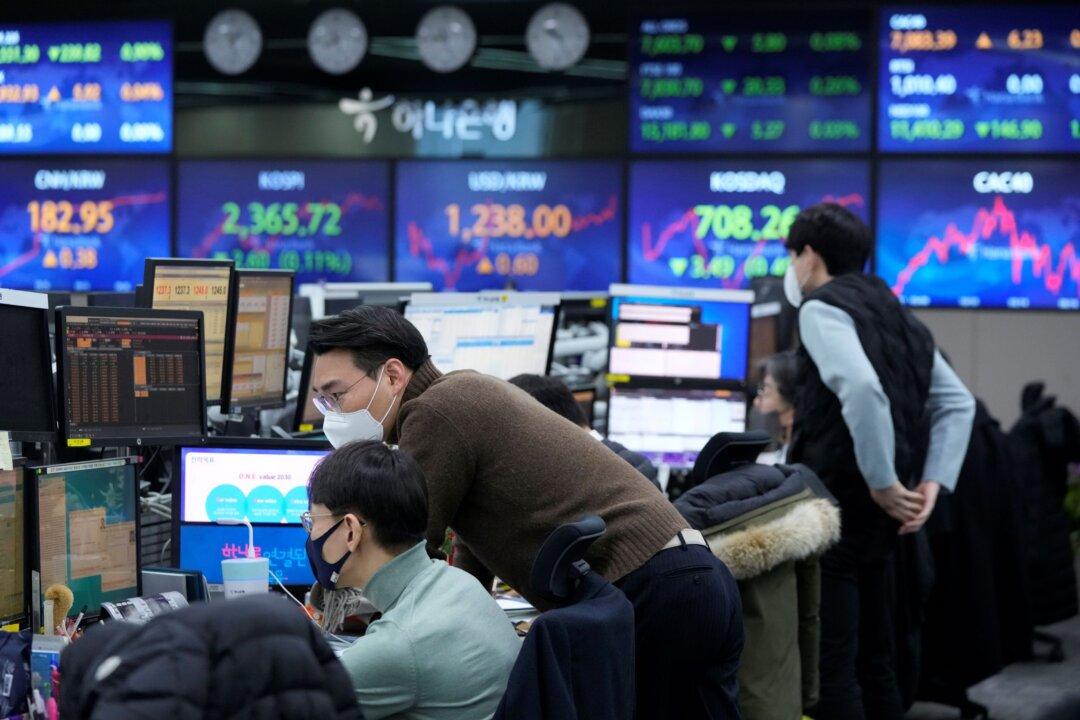TOKYO—Global shares were mostly lower Thursday as investors grew cautious after Wall Street’s biggest pullback of the year.
France’s CAC 40 lost 0.4 percent in early trading to 7,052.61, while Germany’s DAX edged down 0.5 percent to 15,106.21. Britain’s FTSE 100 fell nearly 0.6 percent to 7,787.49. The future for the Dow Jones Industrial Average was 0.4 percent lower while that for the S&P 500 declined 0.3 percent.





